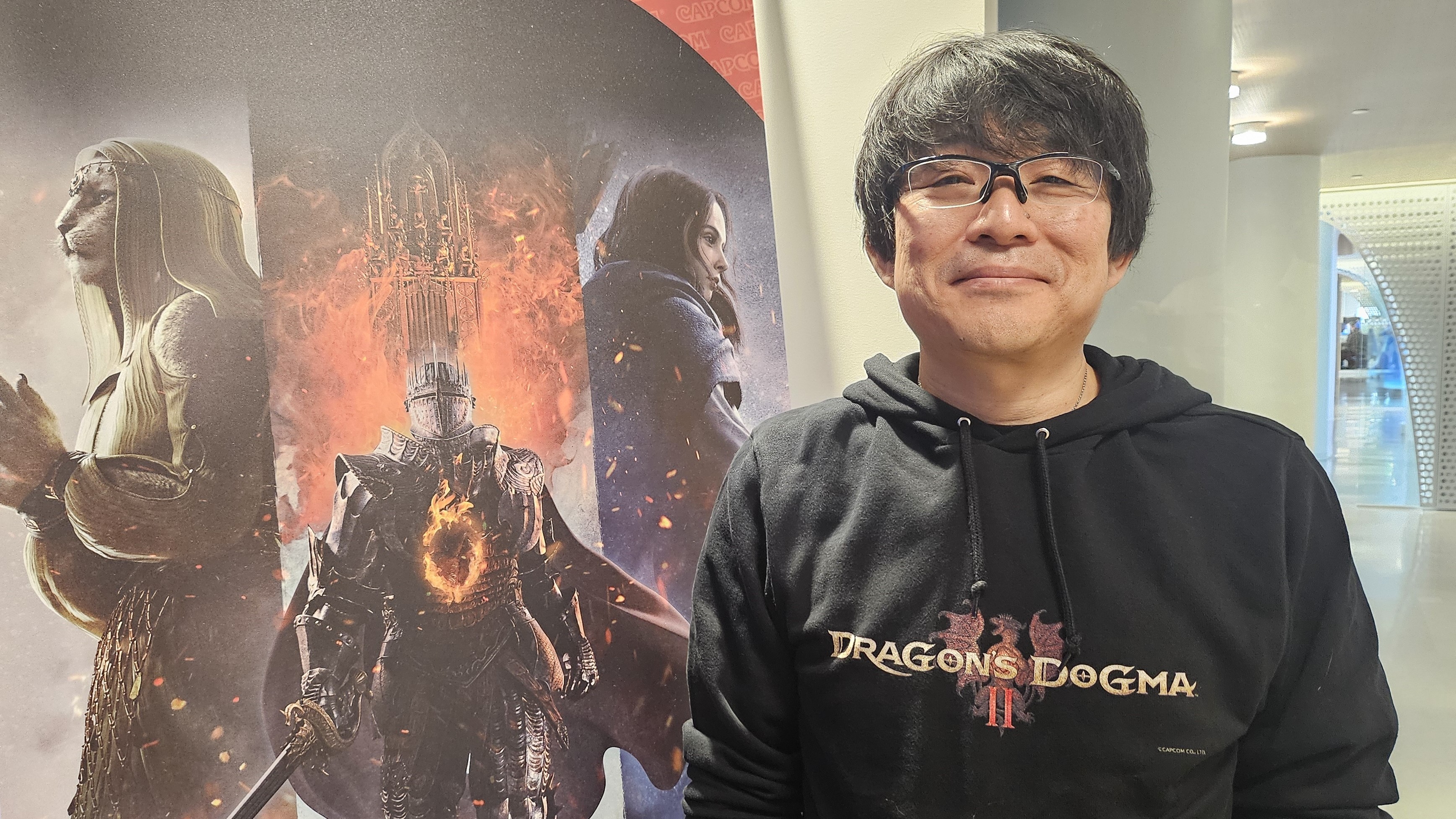After focusing on Devil May Cry and Dragon's Dogma for 20 years, Capcom's Hideaki Itsuno says 'it would be fun to create something new'
If Dragon's Dogma 2's director gets to follow his "gut feeling," maybe his next game will be an original creation.

Going by Capcom veteran Hideaki Itsuno's resume as the director of multiple fighting games and steward of Devil May Cry since 2003, it's clear he loves action games, and is very good at making them. But Dragon's Dogma, an RPG, was his true passion project—a game he originally came up with the concept for in 2000, then had to wait eight years to make. "Every single open RPG that’s been released in Japan, I’ve played them all… or I own them, and I plan to play them!" he told Videogamer.com in an interview in 2012.
Dragon's Dogma was Itsuno's big chance to make something brand new at Capcom, a wholly original RPG of his own design. In the first 10 years Itsuno was at Capcom, his credits showcased a range of Capcom's most beloved series: early on he worked on Street Fighter Alpha, then co-directed cult favorites Rival Schools and Power Stone. He directed an all-time great fighter, Capcom vs. SNK 2, and a not-so-well-remembered racing game, Auto Modellista, before taking charge of the Devil May Cry series. And since then, for 20 years, he's either been working on DMC or Dragon's Dogma.
"Back in my day, because of the much more limited resources teams had, out of the blue you were appointed director of a game even if you didn't have the experience to go with it," Itsuno told me in a recent interview with PC Gamer. It's more difficult to be a director of a game now without that experience, Itsuno said, because the scale of games has increased, and with it the time and resources it takes to complete them.
While that's a perfectly reasonable explanation for why Itsuno has spent two-thirds of his career shepherding these two series, it struck me that Dragon's Dogma 2 does not represent that same exciting prospect of making something wholly new the first game did. How many ideas for games has he been sitting on for decades, at this point? Does Itsuno crave that creative freedom again?
"Obviously we're not going to make an announcement right here, right now—it's a decision that would be made in consideration of all surrounding circumstances," Itsuno said. "But if I was to ignore all of that and go by my gut feeling, it would be fun to create something new."
Dragon's Dogma 2 has been gestating for long enough that making it is quite a different experience than developing back-to-back sequels, he told me.
"If you make a sequel immediately after you make a game, the priority goes to what was left behind, what you couldn't do. Ten years gives you enough time to look back and figure out 'what did I really want to do? What was I really trying to achieve? Both for Dragon's Dogma 1 and 2, one thing I really wanted to create is these worlds existing on their own, and then you as a character penetrating those worlds and impacting them.
Keep up to date with the most important stories and the best deals, as picked by the PC Gamer team.
"With Dragon's Dogma 1, the best we could do with the technology of the time was making it look like a world of its own. But this time, by focusing more on the AI and taking advantage of current technologies, I believe we were able to create a world of its own with people who live in it, monsters that live in it, and then have your character impact all these elements. I really wanted to think of this as a simulator, and I think we've gotten there."

Wes has been covering games and hardware for more than 10 years, first at tech sites like The Wirecutter and Tested before joining the PC Gamer team in 2014. Wes plays a little bit of everything, but he'll always jump at the chance to cover emulation and Japanese games.
When he's not obsessively optimizing and re-optimizing a tangle of conveyor belts in Satisfactory (it's really becoming a problem), he's probably playing a 20-year-old Final Fantasy or some opaque ASCII roguelike. With a focus on writing and editing features, he seeks out personal stories and in-depth histories from the corners of PC gaming and its niche communities. 50% pizza by volume (deep dish, to be specific).

